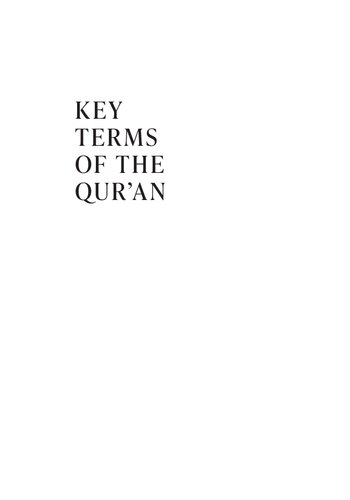

Most ebook files are in PDF format, so you can easily read them using various software such as Foxit Reader or directly on the Google Chrome browser.
Some ebook files are released by publishers in other formats such as .awz, .mobi, .epub, .fb2, etc. You may need to install specific software to read these formats on mobile/PC, such as Calibre.
Please read the tutorial at this link: https://ebookbell.com/faq
We offer FREE conversion to the popular formats you request; however, this may take some time. Therefore, right after payment, please email us, and we will try to provide the service as quickly as possible.
For some exceptional file formats or broken links (if any), please refrain from opening any disputes. Instead, email us first, and we will try to assist within a maximum of 6 hours.
EbookBell Team

4.7
76 reviewsAn essential single-volume companion to the critical interpretation of Islamic scripture
This book provides detailed and multidisciplinary coverage of a wealth of key Qur’anic terms, with incisive entries on crucial expressions ranging from the divine names allāh (“God”) and al-raḥmān (“the Merciful”) to the Qur’anic understanding of belief and self-surrender to God. It examines what the terms mean in Qur’anic usage, discusses how to translate them into English, and delineates the role they play in expressing the Qur’an’s distinctive understanding of God, humans, and the cosmos. It offers a comprehensive but nonreductionist investigation of the relationship of Qur’anic terms to earlier traditions such as Jewish and Christian literature, pre-Islamic Arabic poetry, and Arabian epigraphy. While the dictionary is primarily engaged in ascertaining what the Qur’an would have meant to its original recipients in late antique Arabia, it makes selective and critical use of later Muslim scholarship alongside an extensive body of secondary research in English, German, and French from the nineteenth century to today.